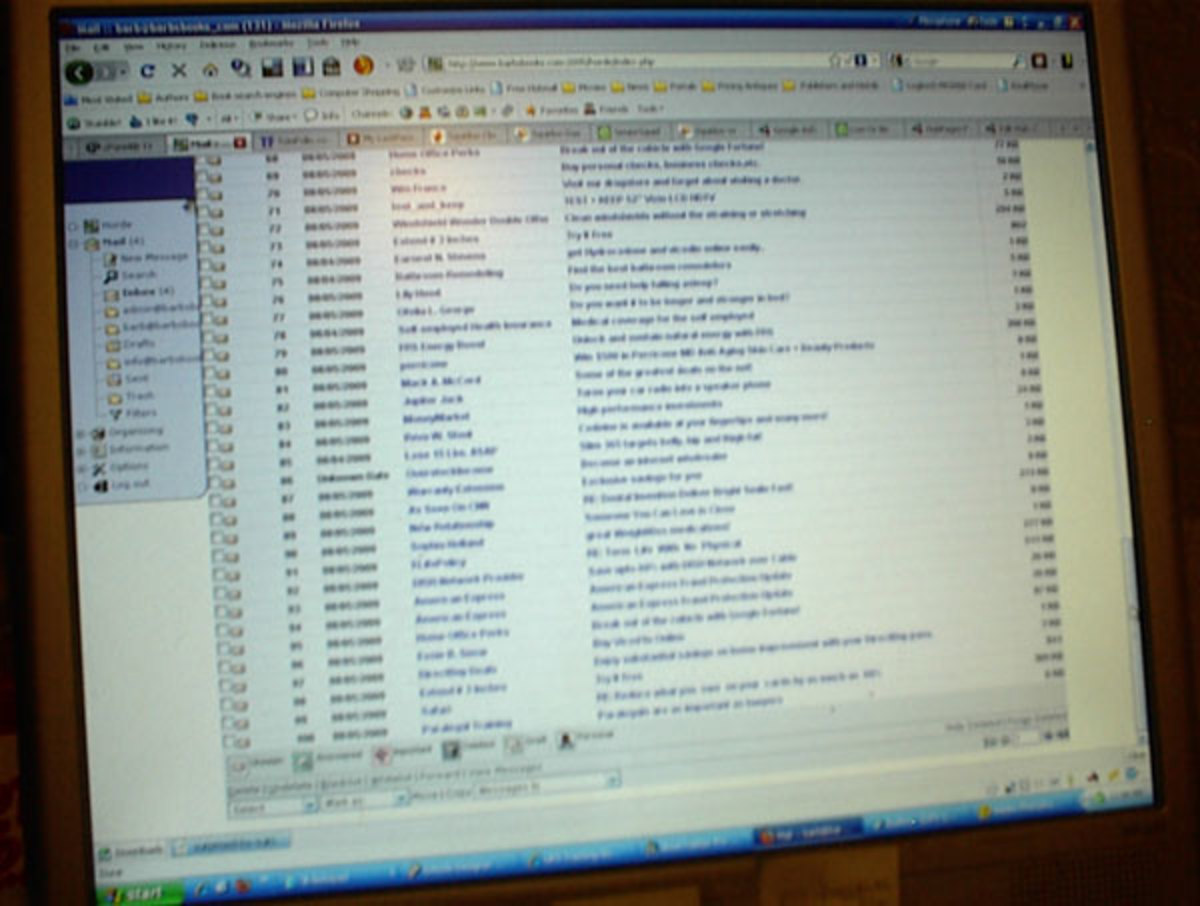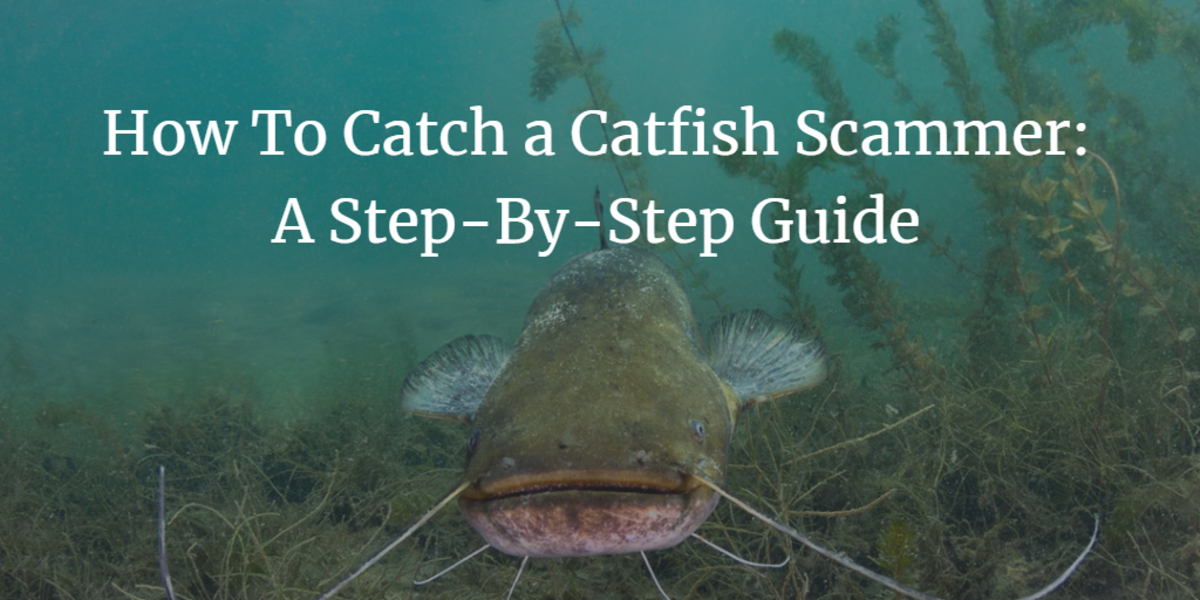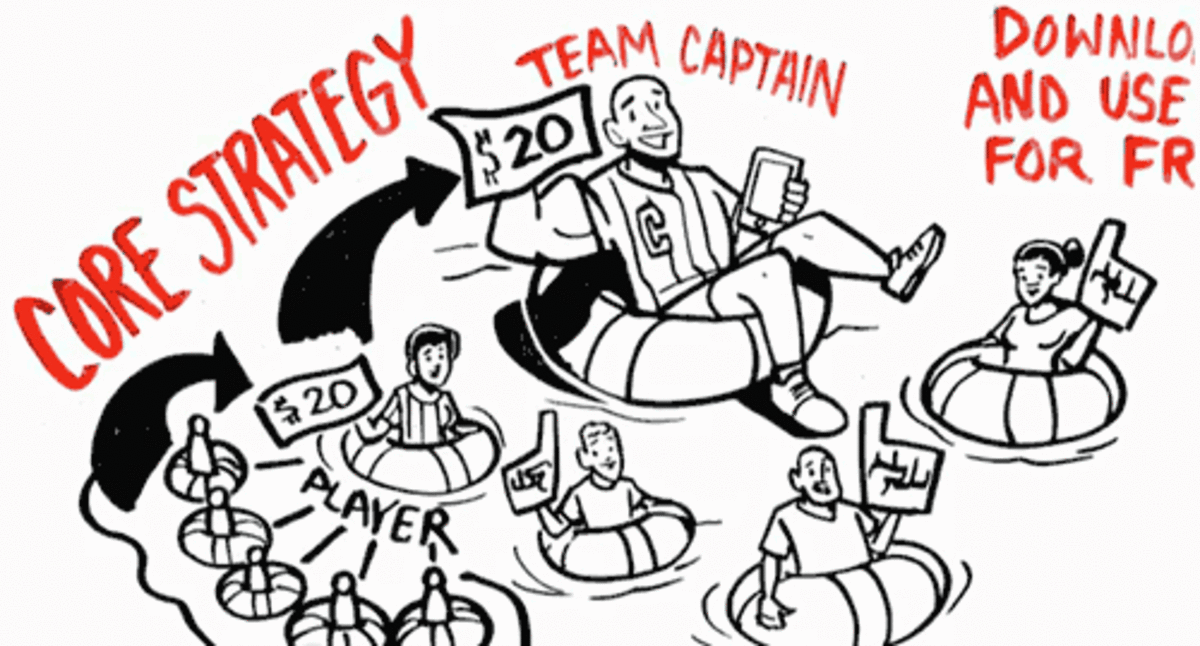When Experts Fail: why trusting an expert may be the wrong thing to do (sometimes, but when?)
Introduction
We all rely on experts and their opinions (i.e. "expert opinion") in our daily lives. We especially rely on expert opinion when we need to make a decision in an area or topic that we are NOT familiar with. However, experts can and do often fail, both with and without intention. Here is a couple ways they can fail, and what you need to look out for.
How do experts fail? By the following methods:
- Failure by omission
- Failure by slacking
- Failure by out-of-field
- Failure by apperance
Failure by Omission
An expert can "fail" by presenting facts and omitting other facts (either out of intention or ignorance). Let me give you an example:
Let's say someone is trying to sell you some nutritional supplement claims to be based glycobiology advances, and are known as "glyco-nutrients". This guy knows his stuff backwards and forwards, appears to an expert in the subject, rants off research and names (field researched by experts who won Nobel prize for it!) He is not a medical expert though. Would you trust him? Would you buy the stuff?
If he's convincing, probably.
What if I tell you experts in glycobiology said the stuff only increases flatulence?
Now you're not so sure, right?
The first expert wasn't wrong. He simply did not give you the whole picture. He may or may not know he's doing so, but the fact is relevant facts were omitted.
This happens a lot in sales situations. The salespeople know their stuff backwards and forwards, but did no research on weaknesses, criticisms, competitors, and so on, or they just pretend there are no weaknesses, criticisms or competitors.
And if you take your advice from this sort of experts, you will not make wise decisions.
EXAMPLE: Is nutrition epidemic real, or manufactured?
Sandy Szwarc is a well know medical investigator and commentator on the science of food, nutrition, and so on. She wrote an opinion piece in 2007 that basically claimed or implied that the standards like diabetes, body mass index, cholesterol, etc. were consistently raised over time to cover more people so doctors can convince more people are sick and medical industry can make more money over all.
The argument sounds good, even makes sense if you are into "conspiracy theories". However, this is bogus. All such changes are supported by statistical research. Here is the best counter-argument against that op-ed piece. It even has charts to explain why the standards were changed once the risk curve has been plotted over time.
If you base your opinion solely on that one expert, you would have gotten the wrong conclusion.
Failure By Slacking
An expert in the subject must keep up his or her edge by updating his or her knowledge. In this rapidly advancing world, if you're out of touch for a year often the world has passed you by. Laws, technology, and everything changes at a rapid pace. Any expert who simply "slacked off" and was relying on experience to carry through will make a fool out of both himself and to any people relying on his or her expertise.
If the expert is about reviews of items in a certain topic, each review must be carefully conducted based on publicly accessible criteria and review process. There can be no slacking off.
Here is one example about how a well-known expert wine magazine has its reputation forever tarnished by picking a fake restaurant with a lousy wine list as "Award of Excellence" winner.
EXAMPLE: Expert Wine Magazine Did No Research
In 2008, Robin Goldstein decided to run a experiment on Wine Spectator magazine, one of the best known wine lover's magazine in the world with reviews, ratings, and even reviews of a restaurant's wine list. He created a fake restaurant, with a wine list composed of some of the lowest rated wines from Wine Spectator, and sent it in with the $250 application fee.
To his surprise, the fake restaurant actually won "Award of Excellence" and was published in August 2008 in Wine Spectator Magazine. Which clearly leads to the conclusion that Wine Spectator Magazine is after the $250 application fee, not in any true ratings or review of restaurants and wines.
If they let this fake restaurant win, how many real restaurants may have submitted a 'somewhat' fake list? Are you really supposed to trust Wine Spectator Magazine with their reviews ever again?
[ Read more about the Robin Goldstein's "Award of Excellence" hoax on his blog ]
Failure by Out-of-field
An expert can fail by taking up a topic that is NOT in his or her field of expertise. In other words, he may be an expert, just not in THAT topic.
Experts in general have a narrow focus of expertise. I know Android OS quite a bit. I am clueless about an iPhone except general knowledge. If I take up a position of, let's say, "Android is better than iOS", that would be very stupid of me, because I haven't used iOS enough to actually form an opinion about it.
Experts do this all the time, and often, get on TV for it too. Here's one that may actually get your baby killed due to negligence:
EXAMPLE: A "Doctor" with degree is in... micro-paleontology?
Those who paid any attention to the anti-vaccination controversy, or have children, may have heard of Viera Scheibner, an advocate of anti-vaccination of infants and children in Australia. She prefers you to call her Dr. Scheibner.
She does has a doctorate, but it's in micro-paleontology. In case you forgot your SAT vocabulary, it means "study of tiny fossils". She has NO medical training other than a nursing course she took way back when.
She blamed EVERYTHING on the vaccines, claiming that children cannot die from catching the childhood diseases unless there are medical mismanagement (i.e. blame the parents).
She has enthusiasm, but her science is bogus. She is out of her field.
Failure by Apperance
An expert can fail if he merely touts experience and actually lack the knowledge to back up all those years of experience. All that experience in the appearance, not special knowledge.
Anybody can setup a webpage / Facebook page / etc. and claim they are an expert in something. Such credentials are impossible to verify, esp. when it's in something as nebulous as "success coaching", "social media", or "internet marketing". Often, they are just out to sell things such as their own "training course" or "marketing system" or "consulting services".
Even when the credentials CAN be verified, they often don't actually say very much. For example, someone who had risen to the top of several multi-level-marketing sales teams definitely knows marketing and lead generation, but that doesn't give them any expertise in evaluating a new MLM's legitimacy, legality, and so on.
Following is one such MLM expert, who claimed that a certain business is a great opportunity and implied it is perfectly legal. Less than year later, that business was declared a pyramid scheme.
EXAMPLE: MLM Expert claimed scam is viable business
Some so-called experts simply tread on their "years of experience" and issue their guidance on a topic without thoroughly investigating the topic, and their followers, trusting the expert's judgement, jump this way and that, and end up with eggs on their faces.
In early 2011, a certain high profile MLM-er, who claimed to have 24 years of experience, top level in multiple high-profile MLMs, and so on and so forth, was found to have praised and recommended a scam on his own website. Not only that, he hinted that regulators would have nothing on this scam. Unfortunately, he's wrong. Only a few months later state of Georgia issued a "cease and desist" to this company, basically "get out of town and never come back".
As of February 2012, there is no sign of a correction or apology on his website regarding this scam and his "review".
How to tell if the expert is fake, or not
Definition of "expert" generally means s/he has special knowledge in a specific topic or area, which gives him or her some sort of credential.
A "fake" expert, on the other hand, is more about the title (Call me Doctor) or credential (I have 24 years in MLM!), than about special knowledge.
How do you distinguish the real experts from the fake experts? Here are a couple signs. (If you think you know a few more, please let me know in the comments)
Real expert shares knowledge and don't tout credentials
Real experts don't mind you calling him up and asking for small bits of information. My auto mechanic never minds me calling him up with a question or two about car related items, from stranded on side of the road to why is GPS not working.
Fake experts, on the other hand, touts their credentials first, promises the sun and the moon (with the stars thrown in for free, limited time only!) but only if you pay them.
Real expert helps you by improving things
A certified auto mechanic is an expert in fixing cars. You and your friend with some tools may be able to do the thing, but it'll probably take you two one whole afternoon. He only needs about one and a half hours, maybe less. He has improved your life by getting you back to life sooner.
Fake experts generally just make your life more complicated, taking up more of your time, but making you FEEL it has improved somewhat.
Real expert simplifies complicated issues
Real expert know the issues backwards and forwards and can phrase them in a simpler way so even a layman can understand it.
Fake experts generally do the reverse: they give numerous recommendations, use a ton of jargon and acronym, leading to a sales pitch for even MORE of their services.
Real expert knows one narrow topic, but knows it very well
Real expert have a specialization. They may also be a generalist in other areas, but they always have a focus in one narrow area.
Fake expert, on the other hand, usually claim to be a generalist with help that applies to everybody regardless of circumstances. A fake "social media expert", for example, doesn't distinguish between Google +, Facebook, Twitter, or any of the more specialized communities.
Real expert identifies and SOLVES problems very quickly
Old engineering joke:
An old engineer retired. A year or so later, the firm called him up. They are having a technical issue with a machine he designed. No one else in the company can figure out what's wrong. He comes in, walks up to the machine, opens a panel, and stares into the workings. After a while, he pulls a piece of chalk out of his pocket and scribes an "X" on one particular component. He says, "There's your problem." and leaves. Sure enough, the firm replaces that part and everything is working fine. A few days later, the firm receives a bill from the retired engineer for $100,000. They call him, asking why the bill is so outrageous. He replies, itemizing the bill, "It's $1 for chalk and $99,999 for knowing where to put it."
That is an expert, and his special knowledge saved the company days, weeks, perhaps months of diagnosis, down time, and so on.
Fake experts, on the other hand, would make things as complicated as possible, to squeeze more money out of you, to drag it out as long as possible.
Conclusion
We rely on experts and their special knowledge in all aspects of our lives, but experts can and do fail, often quite spectacularly. At other times, you may run into fake experts: people who have the credentials but lack the special knowledge that makes an expert useful.
Just because they say they are an expert doesn't automatically make them one. They could be a fake, or they could have a lapse in judgement. We have discussed the four ways a real expert may fail, and we also discussed how to tell a fake expert from a real one.
I don't claim to be an expert in judging experts, but I do hope you find these tips useful.
Anti Scam School
- Why Following the Crowd is Stupid: how speculation b...
Are we repeating history as we have not learned from it? Here are four economic bubbles that had burst and took fortunes with it in the past 400 years. - How a Scam Works: distorting your gain, risk, and va...
Do you know the three factors used in cost/benefit equation? It's cost, benefit (also called gain or value), and risk. Learn how a real scam mess with your estimate of those three factors. - Why do people fall for Internet Scams, and once in, ...
Why do people fall for scams and once in, stay in? I'll show you what cause people to be vulnerable, 3+1 stages of scam, how to spot scam and the crap info they spread, and 3 simple steps to avoid scams. - How does a person become gullible and why? How can i...
What is Gullibility? What makes a person gullible? And how does one go about correcting it? Four factors of gullibility and 8 tactics to decrease gullibility are discussed here.








